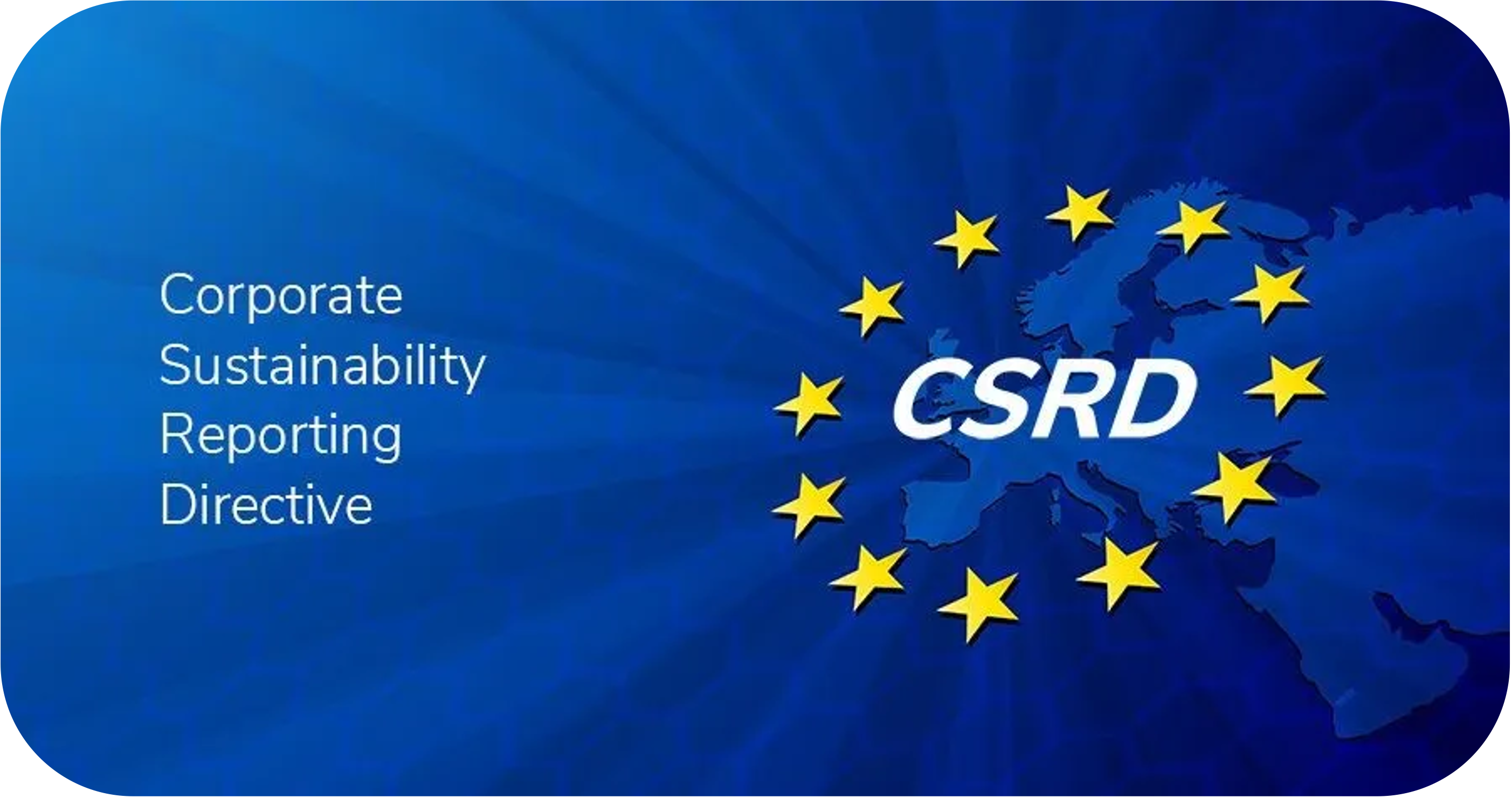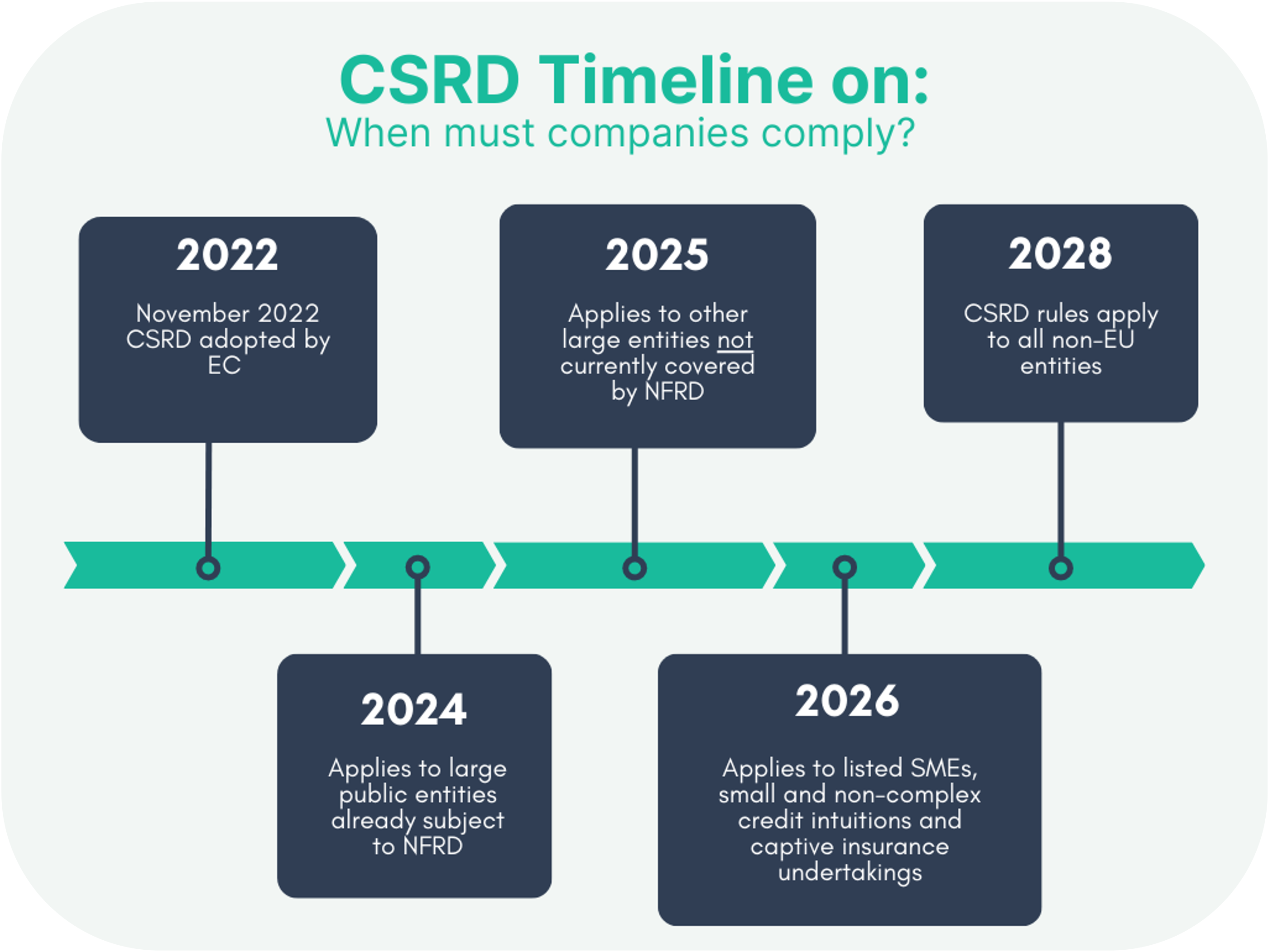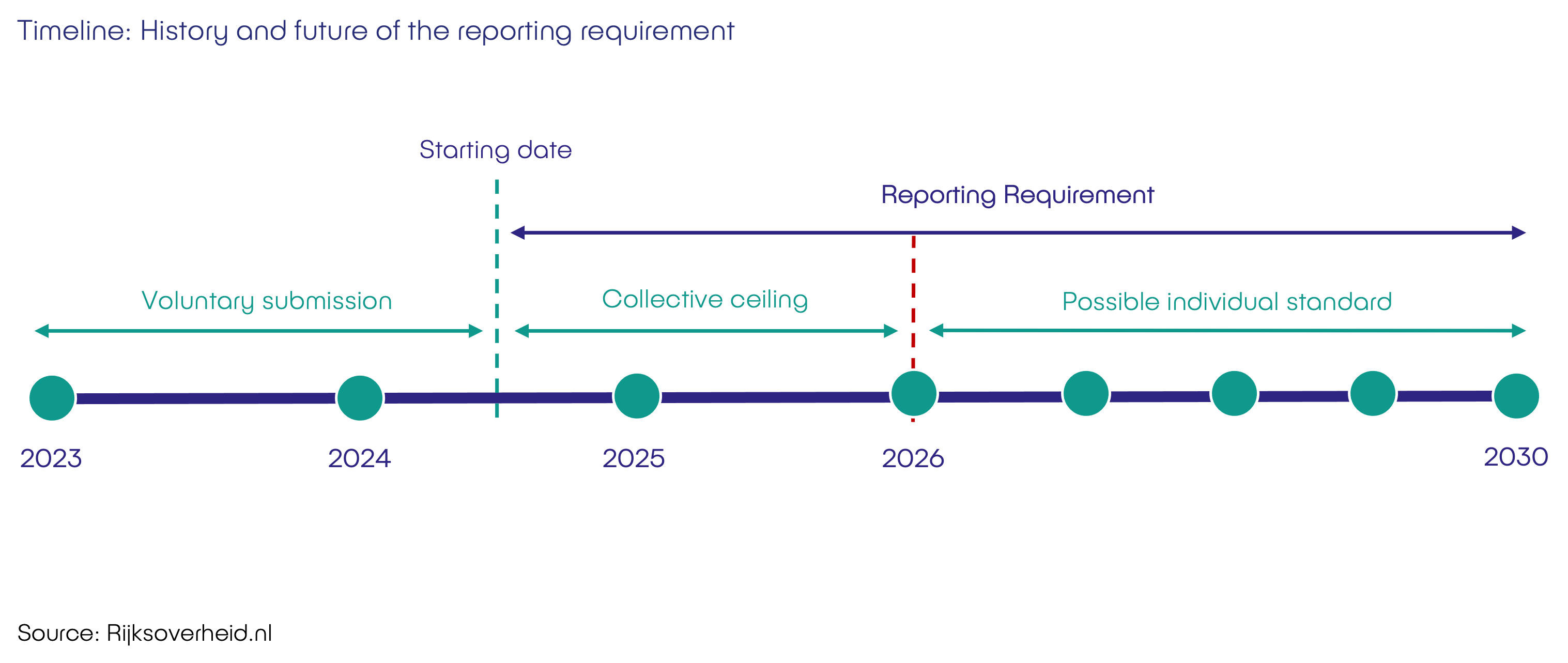As of Jan. 1, 2024, large companies must comply with new accounting rules, which, among other things, require them to record their carbon emissions and environmental pollution.
One of the most important European sustainability legislation is the CSRD – the Corporate Sustainability Reporting Directive.
This page explains what this legislation means, why it is important, when it applies to you (or not), and exactly what numbers you need to provide.

CSRD – Corporate Sustainability Reporting Directive. What is it?
A European directive that deals with transparency and describes what companies have to report in their annual report.
Usually, an annual report is about money or numbers, but in this case, it is about ESG topics (Environmental, Social, and Governance) including CO2 emissions, working conditions, impact on biodiversity, and human rights.
It involves the entire value chain, divided into three ‘scopes’.
Scope 1: The company itself
Scope 2: Impacts that the company has on other companies
Scope 3: The activities in the company’s value chain

Who, What, When?
As of January 1, 2024
The directive applies to listed companies in the European Union with more than 500 employees. From their annual report in 2025, the reports will be back.
As of January 1, 2025
The directive also applies to unlisted large companies. The exact limit is still being determined, but presumably, companies must meet two of the following three criteria:
- 50 million net sales
- 25 million on the balance sheet
- 250 or more employees
As of the 2026 annual report, the reports can be read back.
As of January 1, 2026
It also applies to medium and small stock market funds
As of January 1, 2028
The directive applies to non-EU companies with branches and subsidiaries in the EU that generate more than €150 million in turnover in the EU.

What’s the reason for this law?
Europe has ambitions to become greener. With this law, businesses are held responsible for their impact on people and the environment.
In addition, this legislation is a uniform guideline that makes it easy to compare companies within a sector.
This makes it possible to identify which companies perform well, or poorly, within a sector. This is important for investors, banks, consumers, trade unions and NGOs.

CSRD and mobility
A company’s mobility emissions belong to the scope 1 emissions. In Europe, about 15% of total CO2 emissions are caused by cars and vans, and more than half of those are work-related. In the Netherlands, that percentage is even higher (25%) and the reporting requirement “Reporting Requirement Work-related Mobility of Persons” goes a lot further than CSRD.

More than 100 people? Then you are not subject to the CSRD, but the WPM reporting obligation does apply.
Are you not subject to the CSRD requirement as mentioned above, but your organization does employ more than 100 people? Then you are also obligated to do something.
As of July 1, 2024, under the Reporting Requirement Work-related Mobility of Persons, as an employer with more than 100 employees, you are required to record and report your employees’ CO2 emissions.
Fynch makes this easy for you.
Businesscase Fynch

People
- Less administrative frustration
- Vitality
- Being a good employer

Planet
- 10-20% CO2 reduction
- CO2 report
- Particulate matter reduction

Profit
- Fewer errors in declarations
- Time savings: 2-3 hours per month of travel administration
- Mobility costs
- Productivity
Happy customers









Client cases

...ultimately felt that Fynch offered the most options to meet the needs of our diverse staff, from mechanics to managers.
View this case
...ultimately found that Fynch offered the most options to meet the needs of our diverse workforce, from mechanics to managers.
View this case
...is supported by Fynch through its innovative mobility platform in achieving the objectives of the new mobility scheme.
View this caseWe are here for all your questions on CSRD reporting mobility
As of January 1, 2024
The guideline applies to listed companies in the European Union with more than 500 employees. As of the 2025 annual report, the reports will be traceable.
As of January 1, 2025
The guideline also applies to unlisted large companies. The exact limit is yet to be determined, but presumably, companies that meet two of the following three criteria:
- 50 million net sales
- 25 million on the balance sheet
- 250 or more employees
As of the 2026 annual report, the reports will be traceable.
As of January 1, 2026
The guideline also applies to medium and small-listed companies.
From January 1, 2028
The guideline applies to non-EU companies with branches and subsidiaries in the EU that generate more than €150 million in turnover in the EU.
Starting July 1, 2024, under the Reporting Requirement WPM, as an employer with more than 100 employees, you are required to record and report your employees’ carbon emissions.
You can find the requirements for CSRD in the question answered above.
The Reporting Requirement WPM is part of the Dutch Climate Agreement concluded in 2019. About 27% of all CO2 emissions are caused by mobility, and more than half is caused by employers. This regulation aims to achieve 1 megaton of CO2 reduction by 2030.
- Companies in NL with 100+ employees
- Employee: Minimum 20 hours of paid work (including seasonal)
- Excluded: Temporary workers, volunteers, on-call workers (o-hours)
- Multiple establishments: Then add up
- Reference date employee count: January 1 of the reporting year
- Only yellow license plates, mopeds, motorcycles, public transport, and (e-)bike.
Only business and commuting kilometers
- Have information provision in order by July 1, 2024
- Submit data for 1 July 2024 – 31 Dec 2024 no later than 1 July 2025
- Thereafter, always report before 1 July of the following year via the website portal of RVO
- 2025 Benchmark joint emission ceiling. This may be followed by a standard in CO2 emissions per km.
In short, for each mode of transport/fuel type, all kilometers divided into commuting and business kilometers must be provided. This applies to both private cars and lease cars.
Make sure you know before July 1, 2024, whether this is possible, we can help you with this.
Automate registration of CO2 emissions related to mobility
Save yourself and your workforce time and easily meet CO2 reporting requirements.